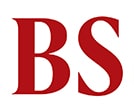Page 80 - Apple
US attorney general takes on Apple in encryption battle
Apple said complying with the FBI's demand would threaten the privacy and security of millions of iPhone users
US cannot make Apple provide iPhone data, NY judge rules
The ruling came as a blow to the government in its battle with the company over privacy and public safety
This is Apple's dire image of America if it loses the iPhone fight
"GovtOS". That's what Apple Inc calls the newest product in its pipeline. It's not the brainchild of the gadget masters in Cupertino but rather an iPhone operating system conceived by some buttoned-down folks in Washington, DC. And unlike the latest iPhone or iPad, it wasn't revealed on a stage before thousands of the faithful. Instead, it was unveiled in a stark response to the Obama administration's attempt to force the computer maker to assist in a terrorism probe. And, Apple has warned, it may someday lead to every American being made an unwilling assistant to law enforcement.In a 65-page federal court filing on Thursday in Riverside, California, Apple said making it override the encryption of an iPhone belonging to one of the San Bernardino shooterswas wild overreach. As a legal matter, Apple's lawyers swiftly disassembled the government's use of an 18th-century law (the All Writs Act) to justify its demand and described in minute detail how forced compliance would play out, both
Apple should be forced to comply with court order: US Republican presidential candidates
They said if Apple is not forced to comply with the court order then this will allow terrorists to get away
Apple asks to block court order to help decrypt iPhone
Chief of Apple Tim Cook equated what the FBI was demanding as a software version of 'cancer'
Apple asks judge to vacate order on locked iPhone
The filing represents Apple's first official response since the judge's order last week on the San Bernardino shooter's device
Apple encryption case: CIA chief John Brennan supports FBI
Investigators want help hacking an iPhone and have demanded Apple's technical assistance in at least 10 other cases
FBI unlocking iPhone to fighting terror, 'bad for America': Apple's Tim Cook
Apple is battling the US govt over unlocking devices in at least 10 cases in addition to iPhone owned by the San Bernardino shooter
Justice dept wants Apple to unlock 9 more iPhones
The disclosure appears to buttress the company's concerns that the dispute could pose a threat to encryption safeguards that goes well beyond the single California case
A search for a moral high ground in a heated debate
What does it mean to be a good corporate citizen?That's one of the questions being tested as Apple and the federal government battle over whether Apple should help the Federal Bureau of Investigation (FBI) unlock an iPhone to gain access to encrypted data that officials say is necessary for their investigation of the San Bernardino, California, shootings that killed 14 people.Apple initially assisted the FBI, but is now fighting a government subpoena directing it to create a new piece of software to open the phone, contending that its position is meant to protect the privacy of its customers.Aside from the thicket of legal issues raised by the case, does Apple have a moral obligation to help the government learn more about the attack? Or does it have a moral obligation to protect its customers' privacy? Or how about its shareholders? And which of these should take precedence?Timothy D Cook, Apple's chief executive, has long spoken about running his company based on certain values. He h
FBI's request to unlock iPhone of dead terrorist not unreasonable: US
The request does not require Apple to redesign a product or to create some sort of new backdoor, said the White House
Apple sees value in its stand to protect security
Privacy and security have become part of its brand, especially internationally, where it reaps almost two-thirds of its almost $234 billion a year in sales
Apple,US escalate the battle over San Bernardino shooter's iPhone
March 22 hearing set on whether Apple must help government agencies unlock iPhone
Congress seeks Apple testimony amid FBI encryption row
The House Judiciary Committee asked officials from Apple to testify at a March 1 hearing, according to people familiar with the planning
Facebook, Twitter back Apple over cracking shooter's iPhone
Apple CEO said the court order, sought and obtained by the FBI, would pose a serious threat to data security
Apple CEO's face-off with FBI reveals a tech industry raring to fight back
The rare show of unity by the tech industry shows that even if the FBI wins this case, in the long run, it loses
Apple gains Silicon Valley's backing in fight against government
Tim Cook vowed to resist a court order demanding it help unlock the iPhone of a shooter in a terrorist attack
Apple launches payments service 'Apple Pay' in China
Apple Pay is available in only a handful of other countries including the United States, Britain, Canada and Australia
Apple rejects 'dangerous' order to hack US shooter's iPhone
Apple CEO Tim Cook said U.S govt has demanded that Apple take an unprecedented step which threatens the security of our customers.
